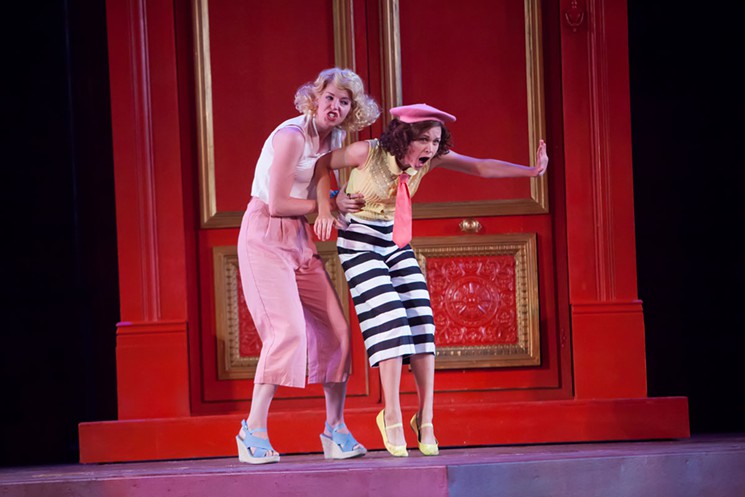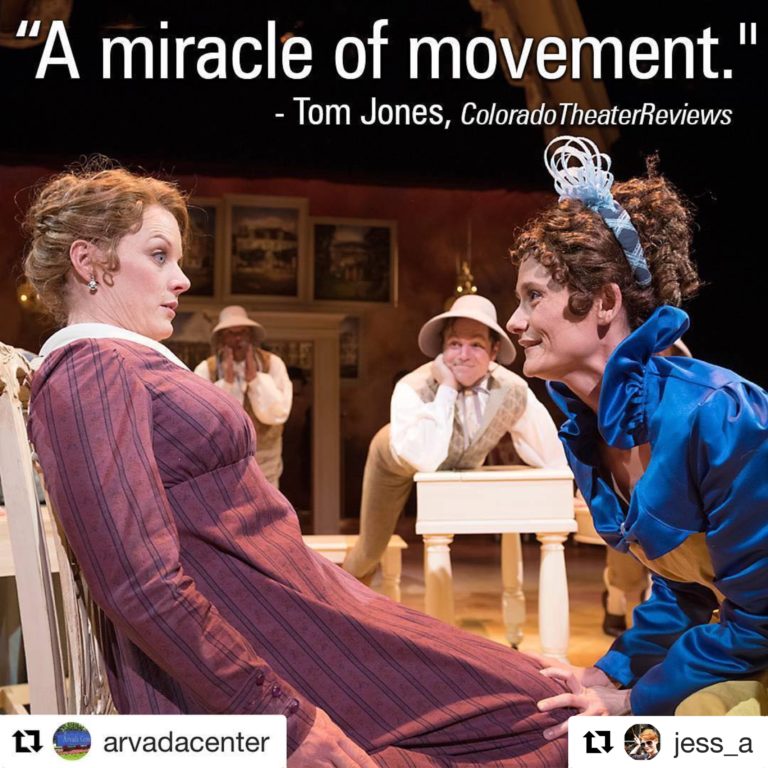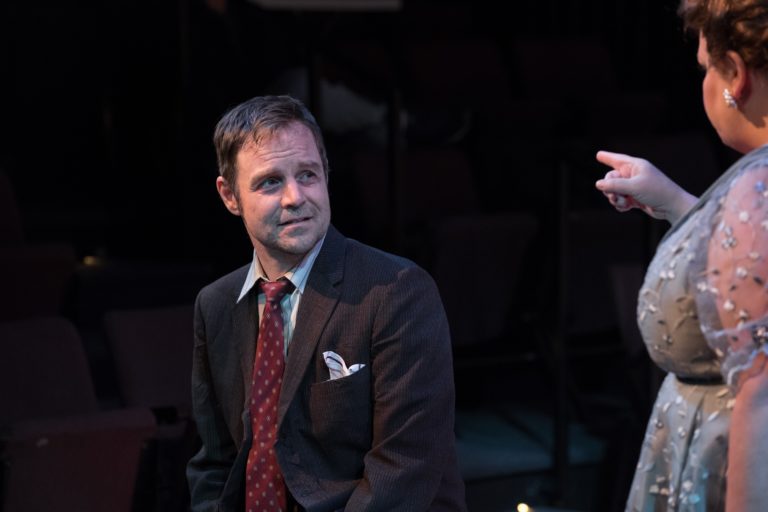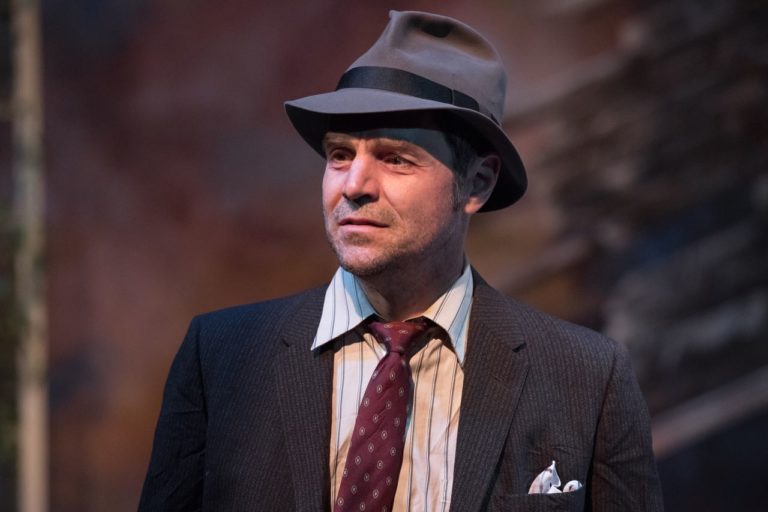
Review: The Comedy of Errors Doubles Down at the Shakespeare Festival
Egeon of Syracuse turns up in Ephesus searching for his lost son, Antipholus, and his son’s servant, Dromio — or, in this production of The Comedy of Errors, directed by Geoffrey Kent for the Colorado Shakespeare Festival, his daughter, Antiphola, and her servant, Dromia.Setting foot in Ephesus is death for any Syracusan, however. Confronted by the Duke of Ephesus and forced to plead for his life, Egeon tells his story of two sets of twins — one set his, the second a servant’s — and a shipwreck during which he and his wife were separated, she with one twin daughter and servant, he with another. Those he raised left to search for their long-lost siblings; unknown to him, the other twins are indeed living in Ephesus, and this Antiphola is a married woman. Touched by Egeon’s story, the duke gives him time to come up with the money to save his life.
Identical twins and lots of complications form the plot, with the Antipholas being mistaken for each other; and the dual Dromias given orders and delivering results to the wrong mistresses, who respond with predictable fury. Ephesus Antiphola’s husband, Adriano, begins to seethe with jealousy at his wife’s inexplicable behavior, and Syracuse’s unmarried Antiphola falls for Luciano, her twin’s brother-in law — to both his and Adriano’s consternation.
There’s not a lot of poetry to this play, one of Shakespeare’s slightest, but there’s an occasional serious undertone — the endless beatings bestowed on the poor Dromias (though Shakespeare’s audiences did seem to find beatings intensely funny) and heartfelt musings by a couple of characters about the roles of men and women in society. Some directors also highlight Egeon’s exile and sad plight, but while Kent’s sunny production nods briefly to these shadows, his primary focus is on farce, with high-energy, high-spirited characterizations, absurd improvisations and dozens of zany touches.
He has set the action in 1930s Paris, gleefully deploying every cheesy cliché you can think of: Edith Piaf songs, cafe tables tended by shirt-sleeved waiters, baguettes, cancan dancing, a strolling accordionist — Alicia Baker, whose skilled musicianship adds greatly to the pleasure of the production. Also: feathered headdresses for the dancers and berets for the Dromias (Meghan Anderson Doyle gets credit for the flattering, easy-moving costumes). Some of the bits are deliberately silly, some downright inspired. Egeon is treated to a long, drawn-out demonstration of the beheading that awaits him, starting with a menacingly raised ax and ending with an anti-climactic pop; a horde of rampaging men in white arrive to carry one of the Antipholas off to the madhouse, but she’s a match for all of them; a goldsmith demanding payment is played by a real-life youngster (Avi Levin) who looks like the kind of knife-wielding little thug Fagin would have employed in Oliver Twist. The beatings become comic, featuring the above-mentioned baguettes.
On the night I attended, the production had a couple of problems. Farce requires split-second timing, and sometimes the timing was off. And in the outdoor Mary Rippon Theatre, the sound became echoey whenever an actor approached the front of the stage.
But the sex switches — about which I’d harbored doubts beforehand — work brilliantly. It’s funny to hear Luciano, a man, praising men’s power and mastery over women in the obedient tones of a traditional patient Griselda, and when Stephen Cole Hughes, playing Adriano, laments in his strong, masculine voice, “Since that my beauty cannot please her eye/I’ll weep what’s left away and weeping die,” it’s flat-out hilarious. The two tall Antipholas are wonderful scene-stealers, each in her different way. Carolyn Holding, Antiphola of Syracuse, is a stunning beauty who combines the soft seductiveness of Marilyn Monroe with the patrician poise of Katharine Hepburn, and quietly commands the stage whenever she enters. Kelsey Didion’s Antiphola of Ephesus has a bristling energy, a gift for physical comedy, and a fine willingness to go all out for a joke. The Dromias, (Lindsey Kyler, Syracuse; Emelie O’Hara, Ephesus) are lithe, playful young creatures, capable of pure cheek and snark in the face of their mistresses’ unfair rages.
Kent’s inventiveness and the answering playfulness of his cast combine to create a joyous, light-as-air celebration, and a good start to the 2016 Colorado Shakespeare Festival season.




